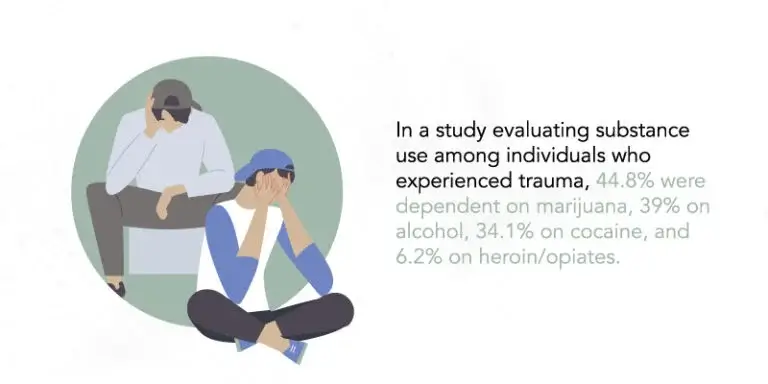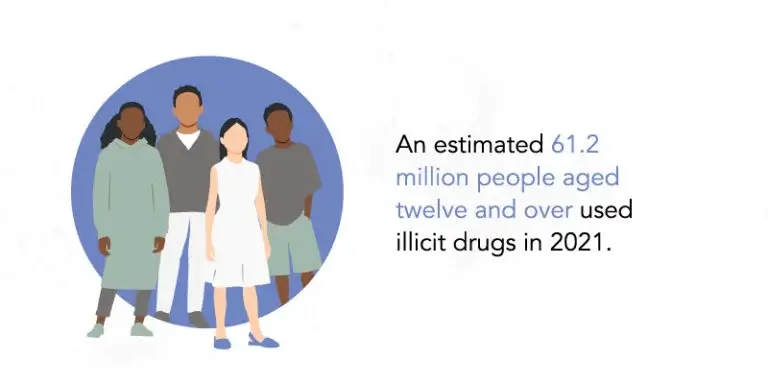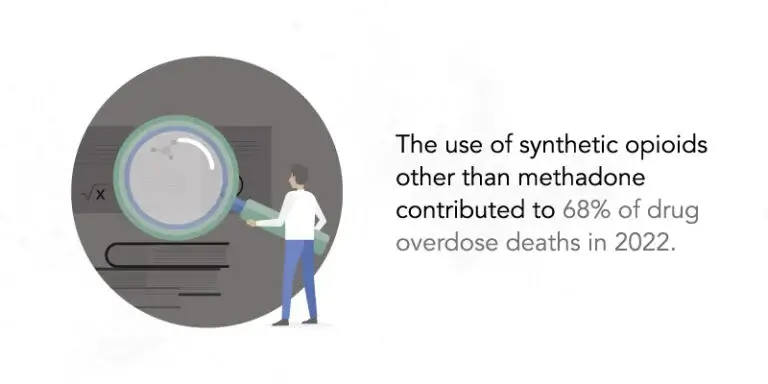Benefits of Intensive Outpatient Programs (IOP) for Substance Abuse Treatment
Discover how outpatient substance abuse treatment helps individuals achieve long-term recovery in this comprehensive article.
What Is Outpatient Substance Abuse Treatment?
Outpatient substance abuse treatment helps individuals struggling with addiction without requiring them to stay in a facility overnight. It is a popular and effective option for those seeking recovery, with over 3.5 million people choosing outpatient programs in 2021.1
This form of treatment provides the tools and resources needed to overcome addiction and achieve long-term recovery.
It allows individuals to attend therapy sessions, receive medication, and participate in group activities while still being able to live at home and continue with their daily responsibilities.

Who May Benefit Most From Outpatient Substance Abuse Treatment?
Outpatient substance abuse treatment can help significantly depending on the individual’s situation and needs.
It is most beneficial for those with one or more of the following characteristics:
- Mild to moderate substance use disorder issues
- Strong support system at home
- Completed an inpatient program
Outpatient treatment programs are less intensive compared to inpatient treatment. Thus, it is ideal for individuals with less severe conditions who can care for themselves outside treatment.
How Does Outpatient Substance Abuse Treatment Differ From Other Levels of Care?
Outpatient substance abuse treatment provides a more flexible approach. The program meets the needs of individuals with responsibilities and obligations that are difficult to take breaks from, such as work or school.
Below are key factors that separate outpatient treatment from other levels of care.
Flexibility of Schedule
In outpatient treatment, clients can attend therapy and group sessions at their convenience. This flexibility allows them to prioritize their treatment around work, school, or family commitments. As a result, they are able to maintain their daily routines and responsibilities more easily.
Independent Living
Outpatient substance abuse treatment allows individuals to live independently at home. This autonomy can provide a sense of stability and support for their recovery journey. In their own living environment, they can implement new coping mechanisms and strategies.
Affordability
Outpatient substance abuse treatment tends to be more affordable than inpatient treatment. This is because it doesn’t include the costs of room, board, and twenty-four-hour care. The ability to continue working or studying also makes outpatient options more economically viable for many.
As a result, individuals with limited resources will find outpatient substance abuse treatment more accessible.
Community Support
Outpatient treatment encourages individuals to rely on their existing support networks. These can include:
- Family
- Friends
- Local support groups
By incorporating community support, outpatient treatment fosters a sense of social connectedness. This reinforces the idea that recovery is not a solitary journey but one supported and aided by others.
Real-Life Application
Outpatient treatment allows individuals to apply the skills in real-life situations. They can practice coping mechanisms in their day-to-day lives while attending treatment sessions. This hands-on application helps develop stronger skills for long-term recovery.
Continuity of Care
Outpatient substance abuse treatment also offers continuity of care. It allows clients to receive ongoing support as they transition back into their regular lives. This continuity ensures that people have access to the necessary resources and guidance.

What Are the Key Components and Services of Outpatient Substance Abuse Treatment Programs?
Outpatient substance abuse treatment programs offer a range of services. Below are some important components that contribute to this treatment’s effectiveness:
Psychodynamic Therapy
Psychodynamic therapy is a widely used treatment approach in outpatient substance abuse programs. This technique focuses on helping individuals explore their unconscious thoughts and emotions.
It aims to uncover underlying issues or traumas that may have led to substance abuse. Clients can develop healthier coping mechanisms through regular sessions with a trained therapist.
Addiction Education
Addiction education involves providing individuals with information about the following:
- The science of addiction
- Physical and psychological symptoms and side effects
- Mechanisms of relapse
- Coping mechanisms and treatment options
This helps clients develop a deeper understanding of their addiction and its consequences. Education also helps to reduce stigma and encourages individuals to seek treatment and support.
Relapse Prevention
Treatment programs offer various relapse prevention techniques, such as:
- Identifying triggers
- Developing coping mechanisms
- Creating a relapse prevention plan
12-Step Recovery
Many outpatient substance abuse treatment programs incorporate the 12-Step model. This approach is based on a set of principles that help individuals transform through personal growth.
The 12-Step approach encourages:
- Regular attendance at support meetings
- Working through the steps
- Building a support network of individuals in recovery
SMART Recovery
SMART is an acronym for Self-Management and Recovery Training. It helps clients overcome addiction by emphasizing self-directed change, self-empowerment, and self-reliance.
The program uses evidence-based techniques to:
- Develop skills for managing cravings
- Set goals
- Maintain motivation
Refuge Recovery
Refuge Recovery combines meditation, Buddhist principles, and a community-based approach. It aims to help individuals recognize the internal causes of addiction and connect with others by incorporating:
- Meetings
- Guided meditations
- Educational resources
Trauma-Focused Treatment Approaches
Trauma-focused therapies help clients process traumatic experiences. Their role is to help develop strategies to manage associated symptoms. Therapists trained in trauma-informed care create a supportive environment to promote healing.
What Are the Primary Goals and Objectives of Outpatient Substance Abuse Treatment?
Outpatient substance abuse treatment programs aim to help individuals reach their recovery goals. Some of the most common objectives of these programs include:
Assessment and Individualized Planning
The treatment team begins by thoroughly assessing each individual’s condition and situation.
Counselors and clinicians gather information about their:
- Substance use
- Mental health
- Personal goals
- Medical history
Based on this assessment, the team creates a personalized treatment plan. This plan outlines the specific objectives and steps needed for recovery.
Behavioral Change
Substance abuse often involves harmful behaviors. The goal is to identify these behaviors and replace them with healthier ones. Through counseling and therapy, clients learn new coping mechanisms, communication skills, and strategies for managing stress.
Improved Mental Health
An important part of outpatient substance abuse treatment is addressing mental health concerns like depression, anxiety, and posttraumatic stress disorder (PTSD), including the impact of poor mental health in adolescence.
This includes providing adult psychiatric services, such as:
- Individual therapy
- Group therapy
- Counseling
- Medication
Gradual Progress and Monitoring
Recovery is a process, not a single event. Outpatient treatment aims to support gradual progress. Regular monitoring helps track this progress and adjust treatment plans if needed.
Ongoing Care and Aftercare
Treatment doesn’t end when the program does. Outpatient substance abuse treatment objectives extend beyond the program’s duration. Individuals are connected to aftercare services and support groups to maintain their recovery and prevent relapse.

How Does Outpatient Treatment Address the Physical, Psychological, and Social Aspects of Addiction Recovery?
Outpatient treatment recognizes that addiction affects every aspect of a person’s life. Here’s how it tackles physical, psychological, and social aspects of addiction recovery:
Physical Aspects
Physical health is a fundamental component of addiction recovery. Outpatient treatment programs address this aspect through various means:
- Medical Detoxification: Detoxification, or detox, is the process of eliminating unwanted substances from the body. This is the first step of treatment, preparing the body for a substance-free life.
- Medication: Detoxing often causes withdrawal symptoms, such as vomiting, fatigue, and body pains. Physicians can prescribe medication to ease discomfort and reduce the risk of complications.
- Nutritional Counseling: Outpatient treatment commonly provides nutritional counseling to address any deficiencies caused by substance abuse. A balanced diet can help individuals regain physical strength and vitality.
- Exercise and Physical Activity: Engaging in regular physical activity helps boost mood and improve overall physical health. Some outpatient programs offer exercise opportunities as part of their services.
Psychological Aspects
Addiction takes a serious toll on mental health. Outpatient programs recognize the importance of psychological and emotional well-being by offering a variety of mental health services:
- Therapy and Counseling: Individual and group therapy and counseling are cornerstones of outpatient treatment. They help individuals explore the underlying causes of their addiction and build resilience.
- Motivational Interviewing (MI): MI is a client-centered approach. It helps individuals find their own motivation for change and build commitment to recovery.
- Behavior Therapy: Behavior therapy, such as cognitive behavior therapy (CBT), is widely used in outpatient substance abuse treatment. It helps individuals identify and change negative thought patterns associated with substance use.
Social Aspects
Recovery often hinges on the support and connections individuals have in their lives. Outpatient treatment addresses social aspects of addiction recovery by offering the following:
- Family System Approach: Outpatient programs involve families and loved ones in therapy sessions. This helps repair relationships damaged by addiction and provides a network of support during recovery.
- Life Skills Training: Addiction can disrupt daily life skills. Outpatient treatment includes training in essential life skills like budgeting, time management, and communication. These skills help individuals reintegrate into society successfully.
- Social Integration: Outpatient substance abuse treatment encourages clients to engage in social activities. These programs help rebuild their social networks, reducing the risk of isolation and loneliness.
How Does Outpatient Treatment Help Individuals Maintain Their Daily Routines While Working Toward Recovery?
Flexibility is a key aspect of outpatient care. Here’s how it allows individuals to maintain their daily routines:
Accessible Locations
Outpatient treatment centers are typically located in accessible areas. This makes it easier for clients to attend sessions without disrupting their daily routines. Many centers have multiple locations, ensuring convenience for clients.
Virtual Options
With the advancement of telehealth services, outpatient treatment has become even more accessible. Individuals can attend therapy sessions remotely. Doing so allows them to fit treatment into their daily schedules without commuting to a facility.
Coping Strategies for Daily Life
Outpatient treatment equips individuals with coping strategies that they can apply in their daily lives. These strategies help deal with stress, triggers, and cravings in healthy ways.
Accountability and Support
Regular therapy sessions and group meetings provide clients with accountability and support. They can discuss challenges, successes, and setbacks with their treatment team and peers. This helps them stay on track with their recovery goals.
Involvement of Loved Ones
Outpatient programs often involve family members and friends in the recovery process. This support system can help people maintain their daily routines by understanding their challenges.
What Role Does Group Therapy Play in Outpatient Substance Abuse Treatment?
Emotional Support and Encouragement
In group therapy, people with substance use disorder can find comfort and support from others in similar situations. It helps them not feel alone or ashamed. They can talk about their feelings and get support from the group. This encourages a sense of belonging and acceptance.
Shared Experiences and Understanding
Group therapy allows individuals to share their stories, problems, and successes. Everyone understands because they’re going through similar things. Listening and understanding each other reduces guilt and self-blame.
Learning from Peers
Seeing others succeed in beating addiction can give hope and inspire other group members to make positive changes in their own lives.
Peers can share advice and strategies on how to:
- Handle cravings
- Avoid triggers
- Find healthier ways to cope
Peer Feedback and Perspective
In group therapy, people get feedback from others with varying perspectives and experiences. This provides a more expansive and diverse outlook. Sharing experiences also improves self-understanding and reveals patterns in their actions.
Social Skills Development
Social Skills Development
- Talking
- Listening
- Empathizing
- Resolving conflicts
These skills are important for healthy relationships and building a strong support network outside therapy.
What Evidence-Based Therapeutic Approaches Are Commonly Used in Outpatient Substance Abuse Treatment?
Outpatient substance abuse treatment is a crucial component of addiction recovery. Some of the most common therapeutic approaches used in this treatment include the following:
Dialectical Behavioral Therapy
DBT is a psychotherapy that combines cognitive-behavioral techniques with mindfulness practices. It teaches people four main things:
- Mindfulness
- Distress tolerance
- Emotional regulation
- Interpersonal effectiveness
DBT helps clients learn better ways to deal with problems, focus on the present, and avoid harmful behaviors.
What is DBT?
Meditation
Meditation is about relaxing and being aware. In outpatient substance abuse treatment, people often use meditation techniques such as:
- Focused breathing
- Guided imagery
- Mindfulness
- Mantra
Meditation improves self-awareness, self-control, and stress management. These are all important factors that contribute to a successful recovery journey.
Motivational Enhancement Therapy (MET)
MET puts the client in the center. It helps them realize and better understand why they want to change and seek treatment.
This therapeutic approach involves empathetic counseling and techniques that support and encourage individuals. The aim is to recognize the potential positive outcomes of abstaining from substance abuse.
Yoga
In seven out of eight recent studies, the inclusion of yoga alongside other treatment approaches proved beneficial for substance use disorder recovery.
- Reduces stress
- Increases self-awareness
- Improves mood
- Promotes relaxation
- Connects the body and mind
Does Outpatient Substance Abuse Treatment Offer Medication-Assisted Treatment (MAT)?
MAT is a common treatment approach for addiction. It involves combining medication, behavior therapy, and counseling.
Medication Options for MAT
The medication prescribed as part of the MAT program depends on the addicted substance. It is meant to help ease withdrawal symptoms.
Here are the FDA-approved medications for MAT:8
- Methadone: Methadone is a long-acting opioid agonist that reduces opioid cravings and withdrawal symptoms.
- Buprenorphine: Buprenorphine is a partial opioid agonist that alleviates opioid cravings and withdrawal symptoms but with a lower risk of misuse.
- Naltrexone: Naltrexone is an opioid antagonist that helps prevent relapse by blocking the euphoric effects of alcohol and opioids.
- Acamprosate: Acamprosate restores the balance of certain chemicals in the brain, which may have been altered by long-term alcohol use. It helps maintain alcohol abstinence by reducing cravings.
- Disulfiram: Disulfiram causes an acute sensitivity to alcohol by interfering with the way the body metabolizes it.
Benefits of MAT for Different Individuals
MAT can be useful for different people who are struggling with addiction. Here’s who might benefit:
- Opioid Addiction: MAT can be highly beneficial for individuals with opioid addiction. Methadone and buprenorphine help stabilize their opioid receptors. As a result, individuals can focus on their recovery journey and break the cycle of drug seeking.
- Alcohol Addiction: Naltrexone can be an effective option for individuals with alcohol addiction. It helps reduce alcohol cravings and blocks the pleasurable effects of alcohol. This medication can help maintain sobriety during outpatient treatment.
- Stimulant Addiction: While MAT options for stimulant addiction are limited, certain medications like Modafinil may be used off-label to address specific symptoms or co-occurring conditions associated with stimulant use disorder.
A Closer Look at MAT
What Role Does Family Involvement Play in Outpatient Substance Abuse Treatment?
Families play a crucial role in outpatient substance abuse treatment. Here is how their support and involvement can greatly impact the recovery process:
Providing Emotional Support
One of the most vital roles family members can play is providing emotional support. Addiction is challenging, and individuals in recovery often face emotional ups and downs.
Families can offer a listening ear, understanding, and empathy. Just being there to comfort and reassure their loved ones can make a big difference.
Encouraging Treatment Engagement
Family members can encourage their loved ones to actively engage in outpatient treatment. This may involve helping them attend the following:
- Therapy sessions
- Medication appointments
- Support group meetings
Creating a Supportive Home Environment
A supportive home environment is crucial for recovery. Family members can help by promoting a substance-free living space. A safe and supportive home environment reduces triggers and cravings.
Setting Boundaries
Setting healthy boundaries is important. Family members should communicate their expectations regarding the treatment process. Boundaries help maintain a stable and accountable environment.
Attending Family Therapy
Family therapy is an integral part of outpatient treatment. It helps families understand addiction’s impact on relationships and teaches problem-solving skills. Attending family therapy sessions can strengthen the family unit and improve overall outcomes.
Celebrating Milestones
Recovery is a journey with milestones along the way. Whether it’s one month of sobriety or finishing a treatment program, family members can celebrate. Acknowledging these milestones provides motivation and boosts self-esteem.

What Challenges and Barriers Exist in Accessing and Delivering Outpatient Substance Abuse Treatment, and How Can They Be Addressed?
Accessing and providing outpatient substance abuse treatment can be difficult due to several obstacles. Here are some of the most common challenges and how to resolve them:
Stigma and Fear
Substance use disorders are often stigmatized. This can instill fear in individuals who need help, preventing them from seeking treatment.
Public education campaigns and professional training can help dispel myths about addiction and promote understanding. Building a culture of empathy and compassion can reduce stigma.
Lack of Insurance Coverage
Many insurance plans might not cover outpatient substance abuse treatment or may offer limited coverage.
Mandating comprehensive insurance coverage for addiction treatment can increase access. Expanding public health insurance programs can also fill gaps in coverage.
Geographical Barriers
In many rural areas, outpatient treatment facilities may be scarce or non-existent. Telehealth and mobile clinics can bridge geographical gaps. Incentives for providers to serve in underserved areas can also help.
Financial Constraints
Even with insurance, co-pays and other out-of-pocket expenses can add up. Sliding scale fees, state-funded programs, or non-profit organizations can provide financial assistance or subsidized care.
Cultural and Linguistic Barriers
Treatment models might not always account for cultural or linguistic differences. Culturally tailored interventions, hiring diverse staff, and offering translation services can make treatment more accessible and effective for different populations.
How Can Individuals Find the Best Outpatient Substance Abuse Treatment Program for Their Needs?
Finding the right outpatient substance abuse treatment program can be challenging. Here are some key points to consider when making this important decision:
Understanding Different Treatment Approaches
Understanding treatment options is crucial when searching for an outpatient substance abuse treatment program.
Some programs may focus on evidence-based therapies such as:
- Cognitive behavioral therapy
- Dialectical behavior therapy
- Motivational interviewing
In contrast, others may incorporate different holistic techniques like mindfulness. Make decisions based on personal preferences and the effectiveness of different approaches.
What is Motivational Interviewing (MI)?
Assessing Individual Needs and Goals
Every individual’s journey to recovery is unique. That is why it’s important to find a program that can meet their specific needs and goals.
This involves assessing various treatment factors, including:
- The severity of the substance abuse problem
- Presence of any co-occurring mental health disorders
- Treatment intensity
- Any specific cultural or gender-related needs
Evaluating Treatment Program Credentials and Accreditation
Ensure the program is licensed and accredited. Accreditation means the program meets certain quality standards and follows the best practices.
Considering Program Location and Accessibility
Individuals should consider the location of the outpatient substance abuse treatment program before deciding. Some individuals may prefer a program that is close to home. Alternatively, moving to a different city or state may benefit others.
Location also involves accessibility. Depending on the individual’s situation, they should ensure the facility has transportation options or telehealth services for those with mobility limitations.
Assessing Program Duration and Flexibility
Outpatient treatment programs vary in duration and flexibility. Some programs may offer short-term intensive treatment, while others provide longer-term care. It’s important to consider how much time the individual can commit and if the program can work around their job or school.
Evaluating Program Support Services
Substance abuse treatment programs should provide comprehensive support services. This may include:
- Psychiatric evaluations
- Counseling and therapy sessions
- Case management
- Aftercare planning

How Can Ethos Wellness Help?
Ethos Wellness is dedicated to assisting individuals in their recovery journey. We understand this path can be challenging, so we aim to provide support and effective treatment to make this journey smoother. Here’s how we can help:
Comprehensive Assessment for Personalized Care
At Ethos Wellness, we begin by conducting a comprehensive assessment of individual needs.
We evaluate factors such as:
- The extent of substance abuse
- Any co-existing mental health concerns
- Individual goals
Evidence-Based Therapies and Holistic Approaches
Our approach combines evidence-based therapies with holistic methods. We offer a variety of therapies, including:
- Cognitive behavioral therapy
- Dialectical behavior therapy
- Psychodynamic therapy
- Eye Movement Desensitization and Reprocessing
- Family therapy
- And much more
Our aim is to address the psychological aspects of addiction. Simultaneously, we incorporate holistic approaches like meditation and yoga to promote overall well-being.
Compassionate and Experienced Team
The Ethos Wellness team comprises highly skilled and compassionate clinicians. Our therapists, counselors, and medical experts create a safe and supportive environment. They bring years of experience to provide individuals with the best care possible.
Support for Families and Loved Ones
We understand the importance of family support. Ethos Wellness offers programs that involve families in the recovery process. We provide resources and guidance to loved ones, equipping them with tools to support recovery.
Flexible Virtual Treatment Options
We recognize that each person’s schedule and needs are unique. Ethos Wellness provides flexible treatment options, including telehealth services. This ensures each client can access the care they need when and where it is most convenient for them.
Reach Out to Learn More About Our Services
If you or a loved one are seeking help on the path to recovery from substance abuse, don’t hesitate to reach out to Ethos Wellness. Our dedicated team is here to support you every step of the way.
Contact us today to learn more about our services and how we can assist you.
Resources
- https://www.samhsa.gov/data/sites/default/files/reports/rpt39443/2021NSDUHFFRRev010323.pdf
- https://www.webmd.com/mental-health/addiction/addiction-what-to-know-about-relapse
- https://www.ncbi.nlm.nih.gov/pmc/articles/PMC3051362/
- https://www.samhsa.gov/data/report/2021-nsduh-annual-national-report
- https://store.samhsa.gov/sites/default/files/SAMHSA_Digital_Download/pep20-02-01-020.pdf
- https://pubmed.ncbi.nlm.nih.gov/34535521/
- https://www.samhsa.gov/medications-substance-use-disorders
- https://www.cdc.gov/mmwr/volumes/72/wr/mm7226a4.htm
